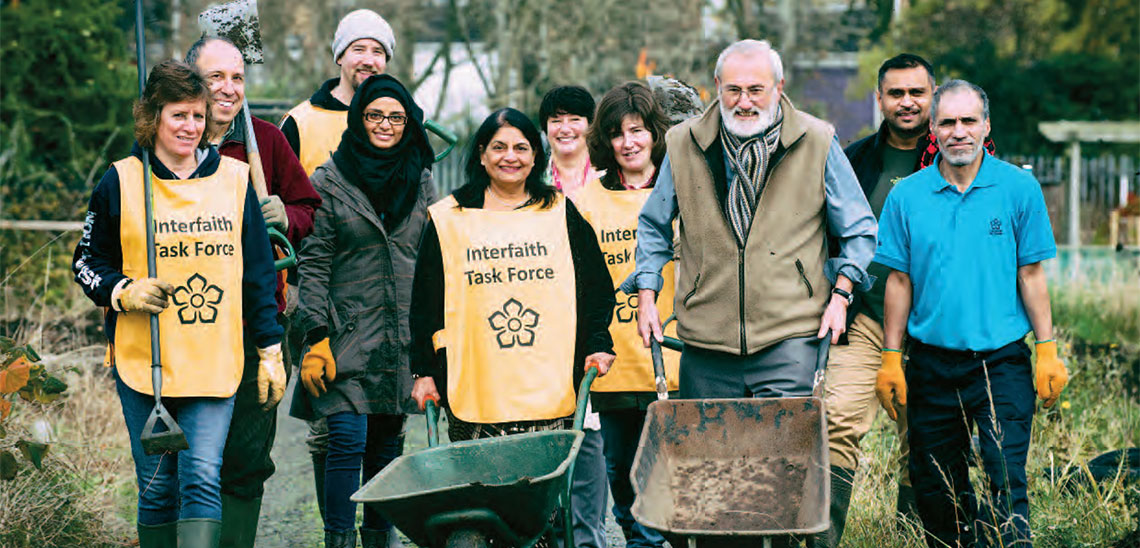Social action
Serving others is an imperative of the teachings of all faith communities, and faith groups have been at the forefront of many historic developments to the betterment of society, both in the UK and around the world.
Faith communities continue to pursue their own separate social justice and social action programmes but they are also, increasingly, working together on projects. This may be through joint participation in such contexts as chaplaincy. Or it may be through opening up their own projects to participation by volunteers of other faiths, or through projects specially designed to be taken forward on a multi-faith basis. There are also multi-faith and inter faith social action projects organised through inter faith bodies and, for example, in educational contexts such as universities.
This kind of engagement may not necessarily be undertaken for the purposes of promoting good inter faith relations, although this will often be a very positive by-product. When people work together on a common project this helps to build friendships irrespective of people's backgrounds. Over time, these friendships widen and develop into strong, socially conscious and thriving local communities based upon trust and respect.
Examples of joint service by different faiths include:
- A faith community or inter faith group arranging a special one-day project such as litter-picking in a local public park, inviting members of other local faith communities to join with them in serving the public
- Women of different faiths in a town working together to collect toiletries and other necessities for a local refugee support network
- Young people of different faiths working together to clear up a local cemetery or help at a local city farm
- 'Inter Faith Mitzvah Day' projects open to volunteers of other faiths – and none – and Sewa Day opportunities for different faiths to volunteer together
- Local faith leaders' groups joining with healthcare professionals to run 'health awareness days' for members of their faith and local communities
- Local faith groups cooperating, through their local inter faith body, to arrange joint fund-raising activities in response to local need or international humanitarian crises, perhaps by linking with faith-based NGOs such as Islamic Relief or Christian Aid
- Faith communities collaborating locally as part of larger, co-ordinated campaigns relating to international development issues, such as famine relief or debt reduction
- Local faith communities holding a joint event with outside experts on issues of social inclusion, for example, how to make places of worship more open and welcoming to those with disabilities
- Local inter faith forums facilitating faith communities in discussion of social issues and petitioning local authorities about matters of mutual concern
- Faith-based social action at national level

Members of Leicester City Council's Muslim Support Group and Christian Fellowship working together as the Interfaith Task Force as part of Inter Faith Week. Photo: Leicester City Council.
The Near Neighbours Programme – an initiative of the Archbishops Council and the Church Urban Fund, part funded by the Department for Communities and Local Government – is a programme which brings diverse communities in parts of England together around opportunities to improve their local communities. It has an emphasis on social action. For further information about the programme and its grant scheme, contact near.neighbours@cuf.org.uk.
FaithAction is a network of faith-based and community organisations serving their communities by delivering public services (such as childcare, health and social care, housing and welfare to work). It currently provides the secretariat for the All Party Parliamentary Group on Faith and Society.
There are also a wide range of other social action initiatives within the different nations of the UK.


